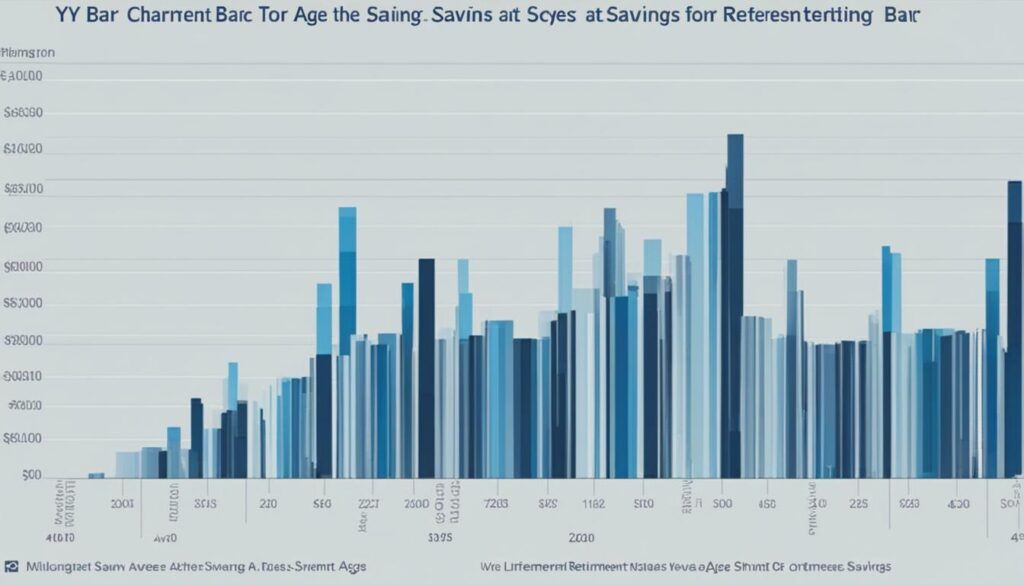Retirement planning is a critical aspect of ensuring financial security in our golden years. As we approach the age of 70, many of us start considering whether our retirement savings will be sufficient to support our desired lifestyle. One common question that arises is: Is $4 million enough to retire at 70?
The answer to this question is not straightforward and depends on various factors. It’s important to take into account your retirement goals, expected expenses, and potential sources of income. By analyzing these elements, you can gain a clearer understanding of whether $4 million will provide the financial security you seek in retirement.
Retirement at 70 is a time when individuals often have a better idea of their basic expenses and the lifestyle they want to maintain. While $4 million may seem like a substantial amount, it’s necessary to consider the potential costs of healthcare, housing, transportation, and leisure activities. By evaluating your specific needs and estimating your expenses, you can better determine if $4 million will cover your retirement goals.
In addition to estimating expenses, it’s crucial to assess potential sources of income during retirement. This might include Social Security benefits, pension payments, and investment income. By factoring in these sources of income, you can get a clearer picture of how much you need to rely on your retirement savings.
It’s worth noting that financial planning tools, such as retirement savings calculators, can provide valuable insights into retirement savings goals. These tools consider factors such as inflation, investment growth, and expected lifespan to help you estimate the amount of money you’ll need in retirement.
Ultimately, determining whether $4 million is enough to retire at 70 requires careful consideration of your individual circumstances. Consulting with a financial advisor can provide personalized advice and guidance tailored to your specific retirement goals. With thorough planning and professional insight, you can make informed decisions that set you on the path toward a financially secure retirement.
Key Takeaways:
- Retiring at 70 requires careful evaluation of your retirement goals and expected expenses.
- Factors such as healthcare costs, housing, transportation, and leisure activities should be considered when estimating retirement expenses.
- Assessing potential sources of income, such as Social Security benefits and pension payments, is essential to determine your reliance on retirement savings.
- Utilizing financial planning tools and consulting with a financial advisor can help you establish realistic retirement savings goals.
- Individual circumstances vary, and personalized advice is crucial for making informed decisions about retirement savings.
Factors to Consider When Planning Retirement at 70
Retirement planning at 70 requires careful consideration of various factors to ensure financial security and a comfortable lifestyle. Two critical aspects to evaluate are the retirement age and expected lifespan. These factors play a significant role in determining if $4 million is sufficient for retirement at 70.
When it comes to retirement age, the decision to retire earlier or later can have a significant impact on financial planning. Retiring earlier means your savings will need to last for a longer period, while retiring later can provide additional time to accumulate wealth.
It’s important to remember that retiring earlier may require covering expenses out of pocket until retirement programs like Social Security and Medicare kick in. This can put additional strain on your retirement savings.
In estimating whether $4 million is enough for retirement at 70, your expected lifespan is a crucial consideration. An accurate assessment of your own health and family medical history can help determine the duration of retirement that your savings need to support.
If you anticipate a longer lifespan based on factors such as good health and family longevity, your retirement savings will need to last longer. Conversely, a shorter estimated lifespan may allow for a more conservative approach to spending.
Ultimately, in retirement planning at 70, it’s essential to strike a balance between lifestyle expectations and financial realities. Consider consulting with a financial advisor to help navigate these considerations and develop a personalized retirement strategy.
| Factors | Considerations |
|---|---|
| Retirement Age | – Retiring earlier requires longer-lasting savings – Additional expenses before retirement programs kick in |
| Expected Lifespan | – Estimate based on health and family medical history – Longer lifespan requires savings to last longer – Shorter lifespan may allow for more conservative spending |
Determining Your Basic Expenses in Retirement
To determine if $4 million is enough for retirement at 70, you need to assess your basic expenses in retirement. Several factors contribute to these expenses, including living expenses, medical expenses, taxes, debt payments, fun money expenses, and an emergency fund.
Living expenses: These include costs related to housing, utilities, food, and transportation. It’s essential to consider your desired lifestyle and location when estimating these expenses.
Medical expenses: Healthcare costs can be a significant portion of retirement expenses. This includes premiums for health insurance, medications, regular check-ups, and potential treatments or surgeries.
Taxes: Taxes on investments and income should be factored into your retirement budget. Depending on your investments and sources of income, you may need to pay federal and state taxes.
Debt payments: If you have any outstanding debts, such as credit card debt or loans, you must consider the monthly payments in your retirement budget. However, housing and car-related debts are excluded from this calculation, as they fall under living expenses.
Fun money expenses: Retirement should be enjoyed, and having funds set aside for travel, hobbies, and leisure activities is important. Allocating a portion of your retirement savings for these discretionary expenses adds to your quality of life.
Emergency fund: It’s crucial to have an emergency fund to cover unexpected expenses like home repairs, medical emergencies, or other unforeseen circumstances. Having a safety net ensures that your retirement savings remain intact, even in difficult times.
Assessing these expenses helps determine a realistic budget for your retirement and whether $4 million is sufficient. By evaluating your specific needs and priorities, you can gain a better understanding of how long your retirement savings may last.

| Expense Category | Description |
|---|---|
| Living expenses | Costs related to housing, utilities, food, and transportation. |
| Medical expenses | Healthcare costs including premiums, medications, and treatments. |
| Taxes | Taxes on investments and income at the federal and state level. |
| Debt payments | Monthly payments for outstanding debts excluding housing and car-related debts. |
| Fun money expenses | Allocated funds for travel, hobbies, and leisure activities. |
| Emergency fund | Savings set aside to cover unexpected expenses. |
Strategies for Making $4 Million Last in Retirement
When it comes to making $4 million last in retirement, there are several effective strategies you can employ. These strategies are designed to help you manage your retirement savings wisely and ensure that you can enjoy a comfortable and financially secure retirement.
The 4% Rule:
One popular strategy is the 4% rule, which suggests withdrawing 4% of your retirement savings each year, adjusted for inflation. This approach is based on the assumption that your savings will last for approximately 30 years. By adhering to this rule, you can maintain a steady income stream while still preserving your nest egg for the long term.
Set Income versus Spending Money:
Another strategy involves setting up separate income streams to cover your basic expenses and using investment income for discretionary spending. By establishing a reliable income source for your essential needs, such as Social Security, pensions, or rental properties, you can allocate your investment returns for more enjoyable activities like vacations or hobbies.
The Bucket Strategy:
A popular approach is the bucket strategy. This strategy involves dividing your retirement savings into different “buckets” based on time horizon and risk tolerance. The first bucket consists of a set amount of money that covers your immediate expenses for the next few years, typically held in low-risk investments. The second bucket contains medium-risk investments for expenses in the medium term, and the third bucket is reserved for long-term growth potential. This strategy helps balance your short and long-term financial needs while minimizing risk.
Annuities and Long-Term Care Insurance:
In addition to the strategies mentioned above, considering annuities and long-term care insurance can provide further financial security. Annuities offer you the option to receive a guaranteed income stream throughout your retirement. Long-term care insurance helps cover the costs of healthcare expenses that may arise as you age, protecting your savings from unexpected medical bills.
By implementing a combination of these strategies, you can optimize your retirement income, mitigate risks, and make $4 million last throughout your retirement years. However, it’s essential to assess your unique financial situation and consult with a qualified financial advisor to tailor these strategies to your specific needs and goals.

| Strategy | Description | Benefits |
|---|---|---|
| The 4% Rule | Withdraw 4% of savings each year, adjusted for inflation. | Provides a steady income stream and preserves savings for the long term. |
| Set Income versus Spending Money | Establish separate income streams for essential expenses and discretionary spending. | Ensures basic needs are covered while allowing flexibility for enjoyable activities. |
| The Bucket Strategy | Divide savings into different buckets based on time horizon and risk tolerance. | Balances short and long-term financial needs, minimizing risk. |
| Annuities | Guaranteed income streams throughout retirement. | Provides financial security by ensuring a steady income. |
| Long-Term Care Insurance | Covers healthcare expenses that may arise as you age. | Protects savings from unexpected medical bills. |
What a $4 Million Retirement Might Look Like
With $4 million in retirement savings at 70, your retirement income can be substantial. Using the 4% rule, you could withdraw approximately $160,000 per year. Additionally, if you receive Social Security benefits, your annual income could further increase. This substantial income should provide a comfortable retirement lifestyle, allowing for financial security and the ability to enjoy various activities and hobbies.
Retiring with $4 million opens up a world of possibilities. You can travel to your dream destinations, explore new hobbies, or even start a small business. This level of financial freedom gives you the ability to pursue your passions and enjoy life to the fullest.
Having a retirement income of $160,000 per year offers much more than just meeting your basic needs. It allows you to indulge in luxuries, spoil your loved ones, and support causes that are important to you. Whether it’s enjoying fine dining, driving your dream car, or spoiling your grandchildren with memorable experiences, a $4 million retirement can provide the means to live a fulfilling and enjoyable life.
Retirement is not about just surviving; it’s about thriving and making the most of the golden years.
Furthermore, having a substantial retirement income provides a sense of security and peace of mind. Knowing that you have sufficient funds to cover your expenses and emergencies allows you to relax and enjoy your retirement without constant financial worry.
Sample Retirement Budget
| Expense Category | Annual Cost |
|---|---|
| Housing | $30,000 |
| Transportation | $10,000 |
| Food | $12,000 |
| Healthcare | $8,000 |
| Travel | $15,000 |
| Entertainment | $10,000 |
| Charitable Donations | $5,000 |
| Total | $90,000 |
This sample retirement budget provides an estimate of the annual expenses you could expect with a $4 million retirement savings. It allocates a reasonable amount for housing, transportation, food, healthcare, travel, entertainment, and charitable donations. With an annual income of $160,000, you would still have $70,000 left to save, invest, or indulge in additional discretionary expenses.
Keep in mind that everyone’s retirement needs and lifestyle preferences are unique. Your actual retirement budget may differ based on your personal circumstances and spending habits. It’s essential to review your expenses regularly and make adjustments as needed to ensure your retirement income aligns with your desired lifestyle.

Considering Average Retirement Savings in the US
When it comes to retirement savings in the US, the average falls significantly short of the $4 million mark. In fact, the mean household retirement savings is around $100,000, indicating that many individuals are not adequately prepared for their golden years. This staggering difference highlights the importance of proactive retirement planning and striving for financial security.
While the average retirement savings may seem discouraging, it’s essential to remember that it should not be the sole benchmark for your personal goals. Having $4 million in retirement savings puts you in a highly advantageous position, allowing for a more financially secure future.
Let’s take a closer look at the average retirement savings in the US:
| Statistic | Amount |
|---|---|
| Mean Household Retirement Savings | $100,000 |
| Median Household Retirement Savings | $65,000 |
| Percentage of Households with No Retirement Savings | 33% |
| Percentage of Households with Less than $10,000 in Retirement Savings | 42% |
As you can see from the table above, a significant number of households in the US have little to no retirement savings. This highlights the urgent need for individuals to take proactive steps towards securing their financial future.
“The journey towards retirement is a personal one, and it’s important not to compare your savings to the average. By prioritizing retirement planning and investing wisely, you can ensure a more comfortable and financially secure retirement.”
Remember, these figures represent the average for the entire country. Your individual circumstances, financial habits, and retirement goals may vary. Having $4 million in retirement savings puts you in a favorable position to enjoy a more financially comfortable retirement compared to the average American.

With careful planning and strategic financial decisions, you can ensure that your retirement savings align with your unique retirement aspirations.
Retirement Income Taxes with $4 Million Savings
When planning for retirement with $4 million in savings, it’s crucial to consider the impact of income taxes on your retirement income. Understanding the tax implications can help you effectively manage your finances and make informed decisions that maximize your retirement income.
Retirement Income Taxes:
Retirement income, including pensions, withdrawals from 401(k) plans and traditional IRAs, and Social Security benefits, may be subject to federal income tax. The amount of tax you owe will depend on your total taxable income, which includes both retirement income and any other sources of income you may have. It’s important to note that the income from distributions of Roth accounts is generally not taxable as long as specific criteria are met.
State-Level Income Tax:
In addition to federal income tax, state-level income tax may also apply to your retirement income. The tax rates and rules vary from state to state, so it’s essential to research and understand the specific tax laws in your state of residence. Some states do not impose income tax on retirement income, providing potential tax advantages for retirees.
Minimizing Retirement Income Taxes:
Proper tax planning can help minimize your retirement income taxes and maximize your overall retirement savings. Here are some strategies that you can consider:
- Contribute to tax-advantaged retirement accounts: By maximizing contributions to accounts such as a 401(k) or traditional IRA, you can potentially lower your taxable income in retirement.
- Utilize tax-efficient withdrawal strategies: By strategically timing withdrawals from different retirement accounts, you can manage your taxable income and potentially reduce your tax burden.
- Consider relocating to a tax-friendly state: If your state imposes high income taxes, moving to a state with no or low income taxes on retirement income can significantly impact your tax liabilities.
- Consult with a tax advisor: A tax professional can provide personalized advice based on your specific circumstances, helping you navigate the complexities of retirement income taxes and identify applicable deductions and credits.
In summary, when planning for retirement with $4 million in savings, it’s essential to understand the tax implications of your retirement income. Proper tax planning can help minimize your tax liabilities and maximize your retirement income, providing you with financial security and peace of mind in your golden years.
Early Retirement Possibilities with $4 Million
With $4 million saved, early retirement is a possibility. Depending on your desired income and expenses, retiring at 50 or even 40 can be feasible. However, the specific circumstances and lifestyle choices will determine the viability of early retirement. It’s crucial to carefully evaluate your financial needs and consult with a financial advisor to ensure a successful early retirement plan.
| Retirement Age | Desired Income |
|---|---|
| 40 | $100,000 per year |
| 50 | $80,000 per year |
When considering early retirement, it’s essential to analyze your financial needs and create a budget that aligns with your goals. Planning for contingencies, such as healthcare costs and unexpected financial burdens, is crucial. Consulting with a financial advisor can provide valuable guidance in structuring your retirement savings and investments to support your desired lifestyle.
While early retirement can offer the freedom to pursue passions and enjoy life, it may require additional financial discipline and strategic planning. Making informed decisions and continuously evaluating your financial situation will ensure that you can maintain a comfortable standard of living and achieve long-term financial security.
Retiring early is an attractive goal for many individuals, and with $4 million saved, you have a solid financial foundation to pursue this dream. Balancing your retirement savings and income needs, along with careful consideration of potential risks and trade-offs, will help you make an informed decision about early retirement.
Retirement at 60 with $4 Million
If you want to retire at 60 with $4 million, you can feel confident knowing that your retirement income will be more than sufficient. Assuming a retirement duration until the age of 80, you could have an annual income of $200,000. This translates to a comfortable monthly income of $16,666. Even if you plan for a longer retirement until the age of 90, you would still enjoy a substantial annual income of $133,333.
Retiring at 60 with $4 million allows you the financial freedom to explore new experiences, invest in your hobbies, and enjoy a comfortable lifestyle throughout your retirement years. With this level of savings, you won’t have to worry about financial burdens and can focus on making the most of your retirement.
Whether it’s traveling, pursuing lifelong aspirations, or spoiling your loved ones, the possibilities are endless with the peace of mind that comes from a robust retirement income. With careful financial planning and investment strategies, your retirement at 60 with $4 million can be both rewarding and fulfilling.
Increasing Retirement Savings
While $4 million is already a significant retirement savings amount, there are strategies you can employ to further increase your savings and grow your wealth in retirement. Seeking expert advice from a financial advisor who understands your unique situation can be immensely beneficial. They can provide personalized guidance and help you develop intelligent investment strategies that align with your financial goals.
With their expertise, you can explore various investment options, such as diversifying your portfolio to minimize risks while maximizing potential returns. They can also guide you in making informed decisions about asset allocation and adjusting your investments based on market conditions.
In addition, a financial advisor can help you take advantage of retirement savings vehicles such as Individual Retirement Accounts (IRAs) and employer-sponsored retirement plans. They can advise you on contribution limits, tax advantages, and potential investment opportunities within these accounts.
By working with a financial advisor and implementing sound investment strategies, you can secure your financial future and potentially leave a substantial inheritance for your loved ones. They can help you navigate the complexities of the financial landscape and provide ongoing support to ensure your retirement savings continue to grow and work for you.
Benefits of Seeking Professional Advice:
- Access to expert knowledge and experience in retirement planning
- Personalized guidance tailored to your specific financial goals
- Assistance in designing an investment strategy that aligns with your risk tolerance
- Stay updated on market trends and investment opportunities
- Optimization of retirement savings vehicles such as IRAs and employer-sponsored plans
- Regular monitoring and adjustment of your investment portfolio
I cannot recommend enough the value of working with a financial advisor to increase your retirement savings. Their expertise and guidance can make a significant difference in growing and safeguarding your wealth in retirement.
Remember, increasing your retirement savings requires a proactive approach and careful consideration of your financial goals. By partnering with a knowledgeable financial advisor, you can navigate the complexities of investing and make informed decisions that lead to long-term financial security.
Ultimately, the goal is to ensure that your retirement funds continue to grow over time, providing you with the financial resources necessary to support your desired lifestyle and peace of mind during your golden years.
Conclusion
In conclusion, retirement planning is a crucial step towards achieving financial security and enjoying a secure retirement. With $4 million in retirement savings, individuals have the potential to create a comfortable and fulfilling retirement. However, several factors must be considered, including retirement age, expected expenses, and income strategies.
When planning for retirement, it is essential to carefully evaluate your specific needs and goals. This includes estimating your anticipated expenses, such as housing, healthcare, and daily living costs, to ensure your retirement savings will last throughout your retirement years.
Seeking the guidance of a financial advisor can be instrumental in creating a solid retirement plan tailored to your unique circumstances. They can help you explore different income strategies and investment options to maximize your retirement savings and ensure a secure financial future.
With proper retirement planning and financial discipline, you have the opportunity to enjoy a secure retirement and achieve your financial goals. Start planning early, make informed decisions, and take advantage of the resources available to you to make the most of your retirement savings.
FAQ
Is million enough to retire at 70?
The answer depends on various factors, such as your retirement age, expected expenses, and income strategies. It’s crucial to carefully consider your retirement needs, plan for taxes, and explore different strategies to make your retirement savings last.
What factors should I consider when planning retirement at 70?
When planning retirement at 70, it’s important to consider your desired retirement age, expected lifespan, and potential retirement expenses. These factors will help determine if million is enough to retire comfortably.
How do I determine my basic expenses in retirement?
To determine your basic expenses in retirement, you should consider living expenses like housing, utilities, food, and transportation; medical expenses for premiums, medications, and treatments; taxes on investments and income; debt payments outside of housing and car; fun money expenses such as travel and hobbies; and an emergency fund to cover unexpected costs.
What strategies can I use to make million last in retirement?
There are several strategies to make million last in retirement, including the 4% rule, setting up income streams to cover basic expenses, using investment income for discretionary spending, using the bucket strategy to divide your savings, considering annuities for guaranteed income, and obtaining long-term care insurance to cover healthcare expenses.
What might a million retirement look like?
With million in retirement savings at 70, your retirement income can be substantial. Using the 4% rule, you could withdraw approximately 0,000 per year. Additionally, if you receive Social Security benefits, your annual income could further increase.
What is the average retirement savings in the US?
The average retirement savings in the US are much lower compared to million. The mean household retirement savings is around 0,000, indicating that most individuals are not adequately prepared for retirement.
How do retirement income taxes work with million savings?
Retirement income, such as pensions, withdrawals from 401(k) plans and traditional IRAs, and Social Security benefits, may be subject to federal income tax. State-level income tax may also apply. Proper tax planning is necessary to minimize tax liabilities and maximize your retirement income.
Can I consider early retirement with million?
With million saved, early retirement is a possibility. Depending on your desired income and expenses, retiring at 50 or even 40 can be feasible. However, the specific circumstances and lifestyle choices will determine the viability of early retirement. Consult with a financial advisor to ensure a successful early retirement plan.
Can I retire at 60 with million?
If you want to retire at 60 with million, you should have more than enough money to support your retirement. Depending on your desired income and expenses, you could have a comfortable retirement lifestyle with a substantial annual income.
How can I increase my retirement savings beyond million?
Seeking expert advice from a financial advisor who understands your situation can help you grow your wealth and maximize your retirement funds. With proper planning and investment, you can secure your financial future and potentially leave a substantial inheritance for your loved ones.
What should I consider in retirement planning for financial security?
In conclusion, retirement planning is crucial for financial security. Determining your retirement needs, considering various income strategies, planning for taxes, and consulting with a financial advisor are all important steps to ensure a secure and fulfilling retirement.



